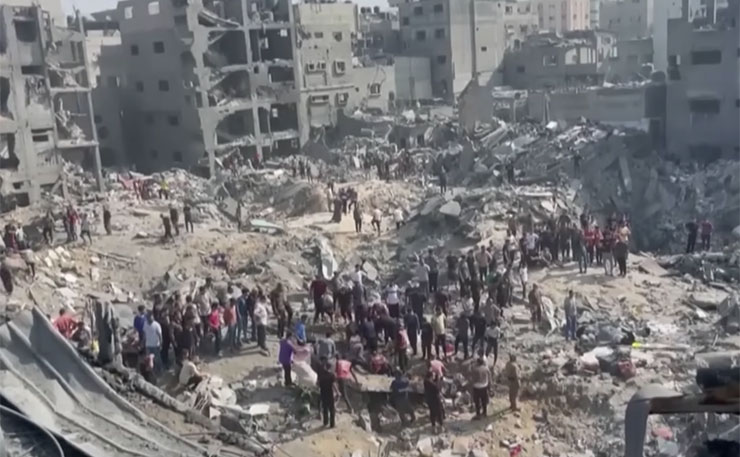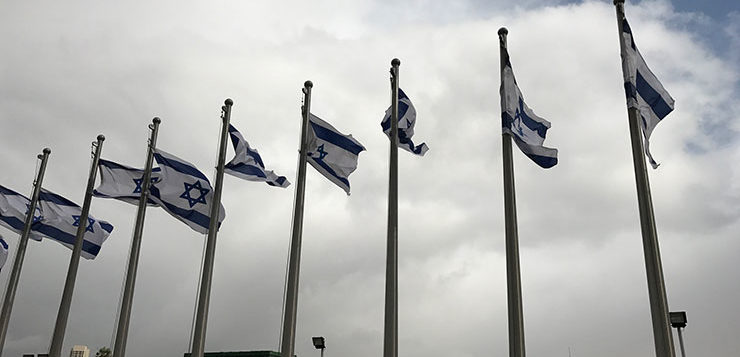We’re being asked to accept that a nation which boasts of having one of the most sophisticated intelligence apparatuses in the world somehow missed thousands of Hamas fighters preparing for an unprecedented incursion across Israel’s border. Dr S.A. Hamed Hosseini believes a critical examination of not just Israel’s past, but its present, opens up other potential explanations.
In the prevailing discourse, prominently shaped by The New York Times and other leading global media outlets, Israel’s failure to anticipate a Hamas attack on October 7th has been widely depicted as a significant strategic blunder. This perception is largely attributed to the intricate interplay of Israel’s domestic politics. However, this narrative, when dissected through the prism of critical and anti-colonial international relations, demands a more profound and nuanced examination.
To categorise this incident merely as an oversight is to overlook the complex tapestry of Israel’s security apparatus. To truly understand the situation, it is important to look at it from a broader perspective, one that takes into account various important factors. This means not only delving into the inner workings of Israel’s politics and economy, but also considering how changes in the political and economic landscape, both regionally and globally, are impacting Israel’s choices and strategies.
As we weave these factors into our analysis, the story takes a different turn. It appears that this was not merely an accidental oversight, but rather a deliberate component of a broader strategic schema. In this vein, it becomes vital to transcend the seductive simplicity of conspiracy theories that singularly focus on the more radical elements of Israel’s political landscape. Our focus should instead pivot to a holistic interpretation of the incident, one that situates it within the rich tapestry of historical events and geopolitical dynamics.
While delving into such a complex framework is beyond the ambit of this essay, we can briefly touch upon one of the recent developments: the growing gaps and multipolarity between regional and global regimes of capitalist value production and appropriation.
Central to this discourse is the ongoing normalisation between Israel and the Arab states. Aimed at establishing a robust trade zone to counter China’s rising influence and strategically curtail China’s access to regional resources, this initiative has not been met with unanimous approval. It has ignited shifts within Israeli political echelons and among American imperialists, who increasingly regard free trade as an antiquated notion, favouring a shift towards more explicit, power-centric imperialism.
Viewed through this lens, the reduced attention to Hamas’s activities could be seen not merely as an intelligence oversight but rather as a consequence of strategic manoeuvres in the context of shifting domestic, regional, and global power relations. The escalation of tensions between Israel and the Palestinians likely serves dual purposes: reinforcing Israel’s bargaining power in negotiations with Arab states and diverting domestic public focus from the Israeli state’s political and economic challenges. This approach also potentially radicalises the domestic political climate, leading to a further consolidation of power.
Historically, the expansion of colonial rule abroad, particularly in the milieu of escalating rivalries among global capitalist powers, has frequently corresponded with an increase in authoritarian governance domestically. This pattern reflects how external imperial ambitions often intertwine with and reinforce more stringent and controlling regimes within the colonising nations themselves.
Israel, in this historical context, is not an exception to the trend of colonial powers intensifying authoritarian measures at home while pursuing colonial ambitions abroad. The pattern, as seen in Israel’s recent geopolitical manoeuvres and internal policies, aligns with the historical inevitability of this trend. Security oversights, like the one involving the unanticipated Hamas attack, often serve as catalysts for authoritarian forces within a state to consolidate power.

A screenshot from footage of the aftermath of Israel’s bombing of northern Gaza in November 2023.
In the context of Israel, occurrences like these serve as catalysts for the intensification of control and the implementation of stricter security measures. This initiates a cycle where external aggression and internal repression exist not merely in parallel but mutually reinforce each other as key elements of state policy. Consequently, this establishes a discernible trend.
The growing international tensions and competition for dominance in the capitalist value production system exert additional pressure on Israel’s political landscape, prompting a strategic alignment that often prioritises security and control. As these global forces vie for influence and power in the Middle East, they inadvertently shape the domestic policies of Israel, leading to a contradictory convergence of internal political manoeuvres and external geopolitical strategies.
Therefore, even if Netanyahu and his Likud party, in conjunction with their more extreme allies, had not seized upon this security lapse, it is likely that other political entities on a similar ideological path would have embarked on comparable actions, driven by the same underlying political dynamics. The specific event and the cascade of ensuing events might have varied in timing, location, or nature, but the underlying pattern likely would have remained a constant.
Whether the calculated moves leading to the catastrophic events in Gaza will achieve their intended strategic outcomes remains uncertain. History suggests that the dynamics of power relations are too intricate to be unilaterally determined by even the most potent forces. In almost two months since the onset of carnage, the global mindset has shifted significantly, countering the direction Israel and its allies had anticipated. The prospect of a normalisation process, where Israel unilaterally dictates terms, now appears considerably dimmed and divisions within Israel’s political landscape are becoming increasingly pronounced.
Donate To New Matilda
New Matilda is a small, independent media outlet. We survive through reader contributions, and never losing a lawsuit. If you got something from this article, giving something back helps us to continue speaking truth to power. Every little bit counts.




